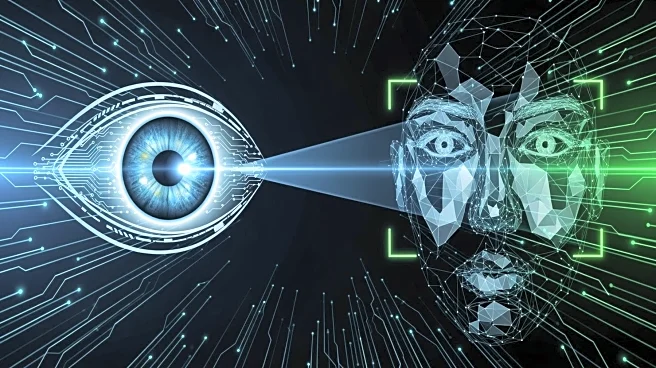What's Happening?
YouTube is launching a new likeness detection tool aimed at combating deepfakes on its platform. This tool is currently being rolled out to members of the YouTube Partner Program. The feature is designed
to identify and remove videos where an individual's face has been altered using AI technology without their consent. To utilize this tool, users must submit a government ID and a video selfie to verify their identity, providing YouTube with the necessary source material for review. The tool functions similarly to YouTube's existing Content ID system, which scans for copyrighted audio, by scanning uploaded videos for potential matches. This initiative comes in response to growing concerns over the misuse of AI technologies like OpenAI's Sora 2, which have made deepfakes more accessible and potentially harmful.
Why It's Important?
The introduction of this tool is significant as it addresses the increasing threat of deepfakes, which can be used to spread misinformation and damage reputations. By providing a mechanism for individuals to protect their likenesses, YouTube is taking a proactive step in safeguarding user privacy and security. This move could set a precedent for other platforms to implement similar measures, potentially leading to broader industry standards for managing AI-generated content. The tool's rollout to YouTube Partner Program members highlights the platform's focus on protecting its content creators, who are often targets of such manipulations. This development could enhance trust in the platform and encourage more creators to engage with YouTube, knowing their identities are better protected.
What's Next?
As the tool is currently limited to the YouTube Partner Program, its effectiveness and user feedback will likely influence future expansions. If successful, YouTube may consider making the tool available to a wider audience, including non-partner users. Additionally, the platform may explore enhancements to detect AI-altered voices, further broadening the scope of protection against deepfakes. Stakeholders such as content creators, legal experts, and privacy advocates will be closely monitoring the tool's impact and efficacy. The broader tech industry may also observe YouTube's approach as a potential model for addressing similar challenges on other platforms.










